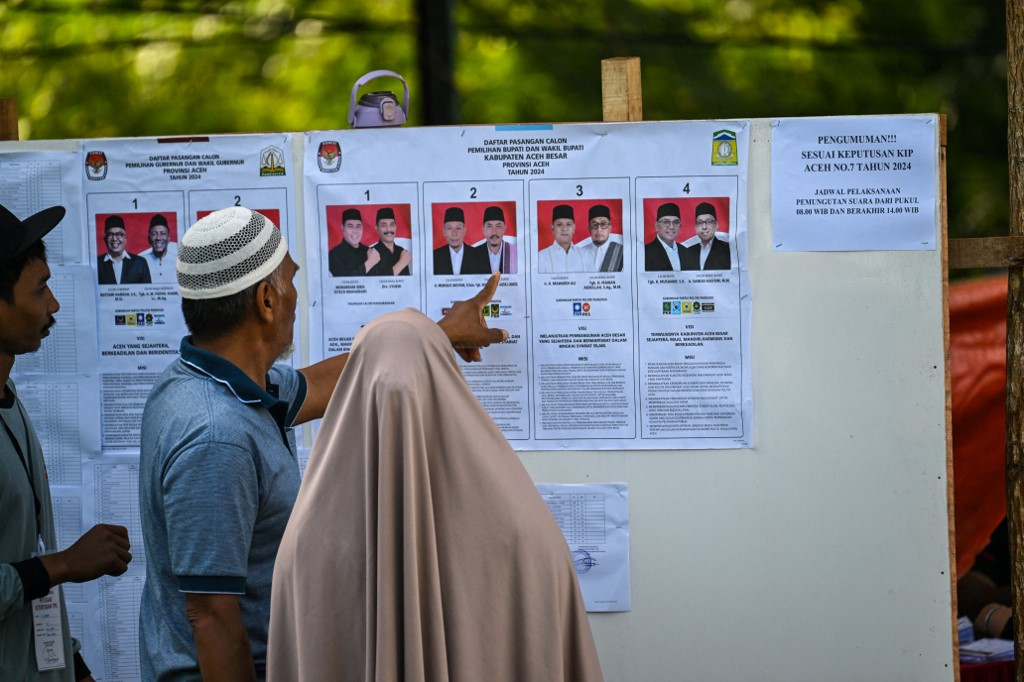Popular Reads
Top Results
Can't find what you're looking for?
View all search resultsPopular Reads
Top Results
Can't find what you're looking for?
View all search resultsReforming the electoral system
The Constitutional Court’s recent ruling that splits national and regional elections starting in 2029 comes as a relief.
Change text size
Gift Premium Articles
to Anyone
T
he horrific memory of the 2019 and 2024 simultaneous presidential and legislative elections looks to be behind us. Back then, hundreds of poll workers died, mostly of exhaustion, and thousands of others fell ill to make sure one of the largest single-day elections in the world was a success.
Therefore, the Constitutional Court’s recent ruling that splits national and regional elections starting in 2029 comes as a relief. The physical and mental burden that poll workers have to endure will drastically decrease. With technical hiccups minimized, we can expect fair and credible elections, hence a robust democracy.
As a consequence of the court’s decision, voters will choose the presidential-vice presidential pair, and House of Representatives and Regional Representatives Council (DPD) members in 2029. Regional elections for governors, regents, mayors and regional legislative councils (DPRD) will follow in two to two and a half years.
Pressure to separate presidential from legislative elections, and later on, national from regional elections, mounted when 527 poll workers died during and after voting day in 2019, according to Health Ministry data. The General Elections Commission (KPU) put the figure at 894. Five years later, the death toll sharply declined to 71, according to the KPU, but still, one fatality was too many.
The fatality rate is simply unacceptable given the narrative about the election as a festival of democracy, which everybody should enjoy and cherish, while hoping the elected leaders and representatives will realize their aspirations. Various measures were taken to prevent the disaster from recurring in the presidential and legislative elections in February 2024, such as setting the maximum age for poll workers at 55 years old.
More than just reducing election fatigue, separating national from regional elections constitutes a strategic move to fulfill the promise of a more robust, responsive and truly representative Indonesian democracy.
A distance of two or two and a half years will allow voters to direct their attention, scrutiny and critical thinking on a smaller, more manageable set of decisions at a time.
This focused approach is more likely to lead to genuinely informed choices, rather than selections based on party loyalty, popularity or superficial impressions.
In a combined election, national political narratives and presidential races tend to overshadow critical regional and local concerns.
Candidates for governor, regent or mayor, and local legislative bodies, struggle to gain adequate attention for their specific platforms, which directly impact citizens' daily lives. With dedicated regional election cycles, local issues and the qualifications of regional candidates will naturally take center stage.
For poll organizers, the new mechanism will allow them to allocate resources more effectively, streamline processes and reduce the incidence of administrative issues. A smoother, more efficient electoral process contributes to voter confidence and ensures that every vote is counted in an accurate way, reinforcing the integrity of the democratic exercise.
Although the court’s ruling will potentially curb elite dominance and boost democratic accountability, not everybody is happy with it. Several political parties within the ruling coalition warn that the new format can increase campaign and logistical expenses, contradicting the vision of efficient elections. They also express worries that the two-year span between elections might prolong political tension and complicate national–local coordination.
Pros and cons are common in a democracy, but considering the final and binding nature of the Constitutional Court’s decisions, policymakers have no choice but to respect the decision and revise the election laws accordingly.
The revision is an impetus for a sweeping electoral system reform, rather than merely focusing on the improvement of technicalities, as the court ruling suggests. The next amendments to the election laws should instead be geared toward enhancing the quality of Indonesian electoral democracy.
To be precise, the reform should aim at eradicating vote-buying practices and the intervention of a sitting government and state apparatus and enhance public participation in the elections, to ensure the best candidates win their democratic contests.
Without comprehensive reform, the sacrifice of hundreds of poll workers will be meaningless.











